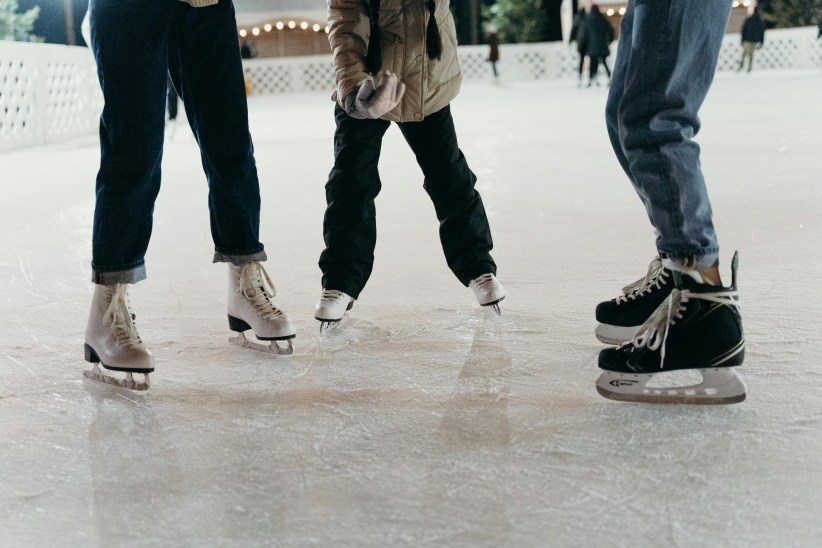Summer camp offers all kinds of fun and character-building experiences for kids of any age.
Whether you’re looking for a few hours of entertainment or weeks of intentional skill-building for your child, you can find it at camp.
Age 0–5
Day camps offer the perfect opportunity for young kids to experience time away from mom and explore new activities. Camp for preschool children focuses on free play, sharing with others, group games (inside and outside), and simple arts and crafts. If you’re sending your child to camp for the first time, make sure the schedule matches her personality and routine to prevent a stressful experience. Does there need to be nap time? Should your child be potty trained to attend? Would your child adjust more easily by starting with a one- to two-day camp instead of full day? Are there appropriate breaks for snacks and changes in activity?
It’s important to find out what the counselor-to-camper ratio is for children this age. You want to ensure your child will be adequately cared for with a friendly, well-staffed team. You also want to determine if the counselors are trained to help with issues common to preschoolers, including separation anxiety, potty training, and temper tantrums.
The best place to find camps for young children is through day cares, churches, nursery schools, and local elementary schools. Specialty camps also abound through gymnastic centers, music schools, and sporting centers. Consider your child’s interests and find a camp that fits to give your preschool child a chance to make new friends and explore new experiences.
Age 6–11
Elementary-age children thrive at camp, whether it’s day camp or stay-away camp. It’s the perfect solution to sibling squabbles and long summer days. But it pays to do your research and find the right fit for your child.
Camps for this age range from sports camps to music camps to academic camps to church camps. Don’t let the variety intimidate you as you research; start with the interests of your child and ask friends and neighbors to give opinions on camps their kids have attended.
At this age, our kids have had the most fun at away camps that gave them the opportunity to try activities not available at home such as zip lining, archery, rock wall climbing, in addition to swimming, arts and crafts, and campfire sing-alongs with friends. Kids gain independence as they make decisions and meet new friends outside of the comforts of home. They gain self-confidence in trying new activities. And they learn to appreciate the beauty of nature as they unplug from technology. They may experience periods of homesickness, but they learn to forge through their feelings with caring camp counselors and new friends.
Specialty camps close to home also help kids explore new hobbies or create opportunities for parents and kids to enjoy camp together. A mother-daughter sewing camp or father-son golfing camp allows great bonding time while developing a skill enjoyed by both.
If your child has never experienced camp, start with a day camp or send a friend along for an away camp. It’s important that their first camp experience be a good one. If you find it wasn’t a perfect fit, try a different one next year. But don’t give up on the beauty and benefits of camp for elementary-age children.
Age 12–15
Tweens and teens have better focus than younger children and benefit from camps that more closely match their interests and personalities.
Sports and music camps are great for this age and help kids advance athletic skills and enhance musical talent. Academic camps offer youth advanced-learning opportunities in subjects they might want to explore for long-term focus. And church camps offer character-building and self-awareness experiences not learned in school.
Camps provide a safe place for teens and tweens to hang out while parents work during summer break. Not yet able to drive or find a summer job, kids this age too often allow technology to rule or walk into unsupervised trouble unless parents intentionally seek out creative options.
Junior high and high schools provide information for local camps worth investigating as the school year draws to a close. It’s also easy to scour the internet for camps that match your child’s interests. Some camps provide certification such as lifeguard training or first-aid certification that can enable your youth to successfully find a job upon completion.
Encourage your child to research camps with you to find one that fits.
When kids attend camp, they develop resilience and flexibility that benefits them later in life. An article in Psychology Today, “Creating Advantage in College,” by Steve Baskin parallels the experiences of summer camp and the adjustment of college. He cites that kids work through similar adjustments at camp and college such as, “Being away from home and your traditional support system (family, friends, familiar places), and dealing with large amounts of uncertainty (what will classes require, how will I fit in socially, can I deal with this new roommate).” Baskin proposes that kids who find success working through these challenges at camp adjust easier when presented with the transition to college.
Summer camp offers unique experiences and character-building opportunities for every child. Whether your child is 2 or 15, camp is the perfect place to find adventure and make lifelong memories in the process. Don’t delay — find a camp your child will enjoy today!
Gayla Grace, freelance writer and mom to five, has sent her kids to camp every summer and continues to find new camps for her one child still at home to enjoy.





















